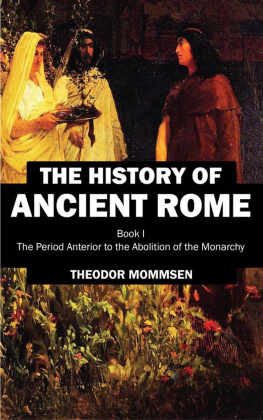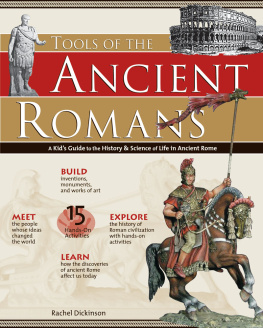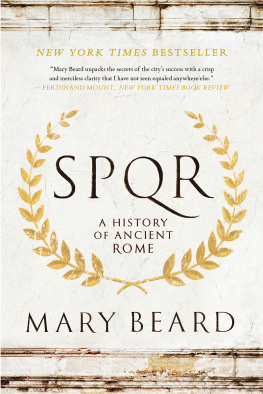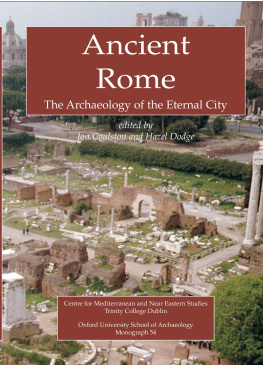Note: A compilation of all five volumes of this work is also available individually in the Project Gutenberg library. See http://www.gutenberg.org/etext/10706
The original German version of this work, Roemische Geschichte, Erstes Buch: bis zur Abschaffung des roemischen Koenigtums, is in the Project Gutenberg E-Library as E-book #3060. See http://www.gutenberg.org/etext/3060
THE HISTORY OF ROME
The Period Anterior to the Abolition of the Monarchy
by
THEODOR MOMMSEN
Translated with the Sanction of the Author
by
William Purdie Dickson, D.D., LL.D.
Professor of Divinity in the University of Glasgow
A New Edition Revised throughout and Embodying Recent Additions
Preparer's Note
This work contains many literal citations of and references to foreign words, sounds, and alphabetic symbols drawn from many languages, including Gothic and Phoenician, but chiefly Latin and Greek. This English Gutenberg edition, constrained to the characters of 7-bit ASCII code, adopts the following orthographic conventions:
1) Except for Greek, all literally cited non-English words that do not refer to texts cited as academic references, words that in the source manuscript appear italicized, are rendered with a single preceding, and a single following dash; thus, -xxxx-.
2) Greek words, first transliterated into Roman alphabetic equivalents, are rendered with a preceding and a following double-dash; thus, xxxx. Note that in some cases the root word itself is a compound form such as xxx-xxxx, and is rendered as xxx-xxx
3) Simple unideographic references to vocalic sounds, single letters, or alphabeic dipthongs; and prefixes, suffixes, and syllabic references are represented by a single preceding dash; thus, -x, or -xxx.
4) (Especially for the complex discussion of alphabetic evolution in Ch. XIV: Measuring And Writing). Ideographic references, meaning pointers to the form of representation itself rather than to its content, are represented as -"id:xxxx"-. "id:" stands for "ideograph", and indicates that the reader should form a picture based on the following "xxxx"; which may be a single symbol, a word, or an attempt at a picture composed of ASCII characters. E. g. "id:GAMMA gamma" indicates an uppercase Greek gamma-form followed by the form in lowercase. Some such exotic parsing as this is necessary to explain alphabetic development because a single symbol may have been used for a number of sounds in a number of languages, or even for a number of sounds in the same language at different times. Thus, -"id:GAMMA gamma" might very well refer to a Phoenician construct that in appearance resembles the form that eventually stabilized as an uppercase Greek "gamma" juxtaposed to one of lowercase. Also, a construct such as "id:E" indicates a symbol that with ASCII resembles most closely a Roman uppercase "E", but, in fact, is actually drawn more crudely.
5) Dr. Mommsen has given his dates in terms of Roman usage, A.U.C.; that is, from the founding of Rome, conventionally taken to be 753 B. C. The preparer of this document, has appended to the end of each volume a table of conversion between the two systems.
PREFACE BY THE TRANSLATOR
When the first portion of this translation appeared in 1861, it was accompanied by a Preface, for which I was indebted to the kindness of the late Dr. Schmitz, introducing to the English reader the work of an author whose name and merits, though already known to scholars, were far less widely familiar than they are now. After thirty-three years such an introduction is no longer needed, but none the less gratefully do I recall how much the book owed at the outset to Dr. Schmitz's friendly offices.
The following extracts from my own "Prefatory Note" dated "December 1861" state the circumstances under which I undertook the translation, and give some explanations as to its method and aims:
"In requesting English scholars to receive with indulgence this first portion of a translation of Dr. Mommsen's 'Romische Geschichte,' I am somewhat in the position of Albinus; who, when appealing to his readers to pardon the imperfections of the Roman History which he had written in indifferent Greek, was met by Cato with the rejoinder that he was not compelled to write at allthat, if the Amphictyonic Council had laid their commands on him, the case would have been differentbut that it was quite out of place to ask the indulgence of his readers when his task had been self-imposed. I may state, however, that I did not undertake this task, until I had sought to ascertain whether it was likely to be taken up by any one more qualified to do justice to it. When Dr. Mommsen's work accidentally came into my hands some years after its first appearance, and revived my interest in studies which I had long laid aside for others more strictly professional, I had little doubt that its merits would have already attracted sufficient attention amidst the learned leisure of Oxford to induce some of her great scholars to clothe it in an English dress. But it appeared on inquiry that, while there was a great desire to see it translated, and the purpose of translating it had been entertained in more quarters than one, the projects had from various causes miscarried. Mr. George Robertson published an excellent translation (to which, so far as it goes, I desire to acknowledge my obligations) of the introductory chapters on the early inhabitants of Italy; but other studies and engagements did not permit him to proceed with it. I accordingly requested and obtained Dr. Mommsen's permission to translate his work.
"The translation has been prepared from the third edition of the original, published in the spring of the present year at Berlin. The sheets have been transmitted to Dr. Mommsen, who has kindly communicated to me such suggestions as occurred to him. I have thus been enabled, more especially in the first volume, to correct those passages where I had misapprehended or failed to express the author's meaning, and to incorporate in the English work various additions and corrections which do not appear in the original.
"In executing the translation I have endeavoured to follow the original as closely as is consistent with a due regard to the difference of idiom. Many of our translations from the German are so literal as to reproduce the very order of the German sentence, so that they are, if not altogether unintelligible to the English reader, at least far from readable, while others deviate so entirely from the form of the original as to be no longer translations in the proper sense of the term. I have sought to pursue a middle course between a mere literal translation, which would be repulsive, and a loose paraphrase, which would be in the case of such a work peculiarly unsatisfactory. Those who are most conversant with the difficulties of such a task will probably be the most willing to show forbearance towards the shortcomings of my performance, and in particular towards the too numerous traces of the German idiom, which, on glancing over the sheets, I find it still to retain.
"The reader may perhaps be startled by the occurrence now and then of modes of expression more familiar and colloquial than is usually the case in historical works. This, however, is a characteristic feature of the original, to which in fact it owes not a little of its charm. Dr. Mommsen often uses expressions that are not to be found in the dictionary, and he freely takes advantage of the unlimited facilities afforded by the German language for the coinage or the combination of words. I have not unfrequently, in deference to his wishes, used such combinations as 'Carthagino-Sicilian,' 'Romano-Hellenic,' although less congenial to our English idiom, for the sake of avoiding longer periphrases.







